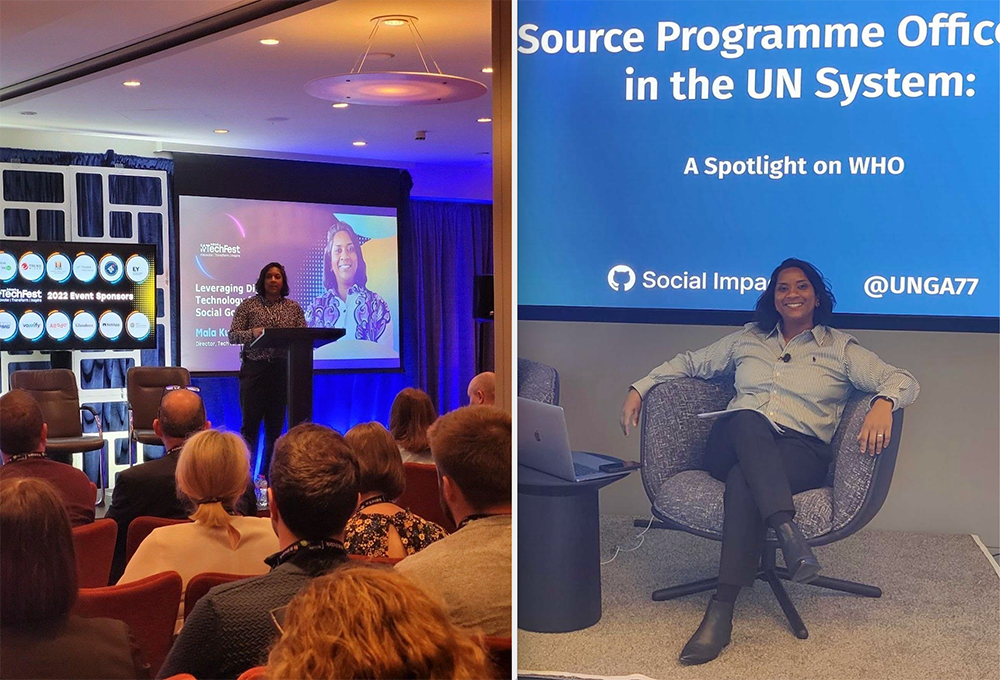
Five questions for Mala Kumar (MA, 2010)
Kumar is the Director of GitHub’s Tech for Social Good. GPIA Faculty Sean Jacobs sent her five questions ahead of two parallel events on technology politics, especially the gender-digital divide, that GitHub is organizing for the 67th Commission on the Status of Women (CSW 67) this month.
The theme of this year’s CSW is gender equality and technology in the digital age. What are your key priorities for gender-transformative technology?
Given the recent momentum and massive investments, everything related to artificial intelligence (AI) is a key priority. This includes who builds the tools and models, how they are built, what are the training datasets, how they are deployed, and who can access what (along the gender digital divide).
How does GitHub’s Tech for Social Good, which you direct, contribute to this mission?
GitHub is a Microsoft-owned company and is the largest code-hosting platform in the world. We also own the AI pair programming tool, Copilot. (I explain Copilot in this video.) I started Tech for Social Good four years ago to leverage GitHub’s people, products and platform for the social sector. I hope we will bring more social sector experts into responsible AI in software development.
What has been the most rewarding aspect of your work on these issues?
I spent most of my career working in tech for international development (ICT4D) at the UN. While rewarding, it was hard to push the UN to use technology in strategic ways. As GitHub’s Director of Tech for Social Good, I’ve been able to do a lot more, like revamping how the World Health Organization builds software and helping them create an Open Source Program Office (OSPO). (Watch our UNGA side event or read more, here.)
On March 10th, you organized an event as part of #CSW67 to explore “three challenges that people who identify as women and girls disproportionately face globally: access to technology skills, online harassment and bullying, and domestic violence.” Panelists will come from a number of countries, very different in their experience and access to technology and rights. What are the common characteristics about what they strive for that you can identify?
Four out of five of our panelists are from lower and middle-income countries or LMICs. All four are tech founders who recognize women having strong tech literacy is critical for economic inclusion, irrespective of country. Two of them created tech tools that are hyper-specific to local languages and contexts. This contrasts with a lot of technology, which tries to build one thing for everyone.
Finally, how did GPIA prepare you for the work you’re doing now?
GPIA is where I first explored tech for social good! I wrote my thesis in 2010 on the human rights implications of tech business processing outsourcing in India and Senegal. I got a grant from the India-China Institute to do field research; I was probably one of ten researchers exploring the topic at the time. After submitting my thesis, my advisor (Sakiko Fukuda-Parr, Professor of International Affairs) wrote a long email congratulating me on identifying something new. That stuck with me as I progressed in my career.